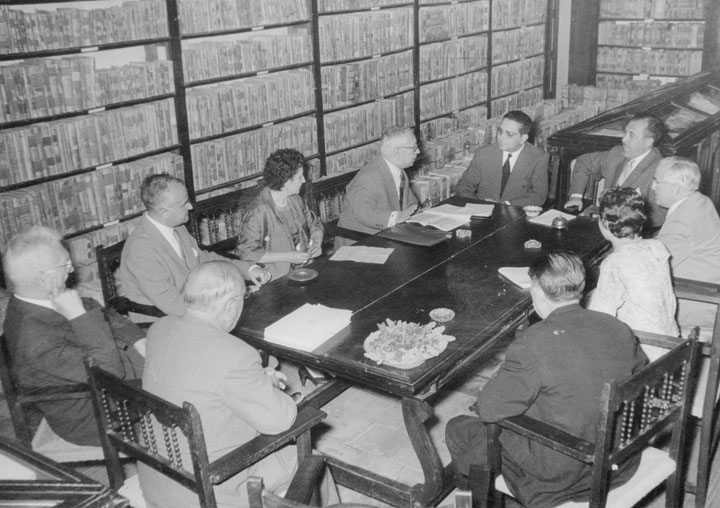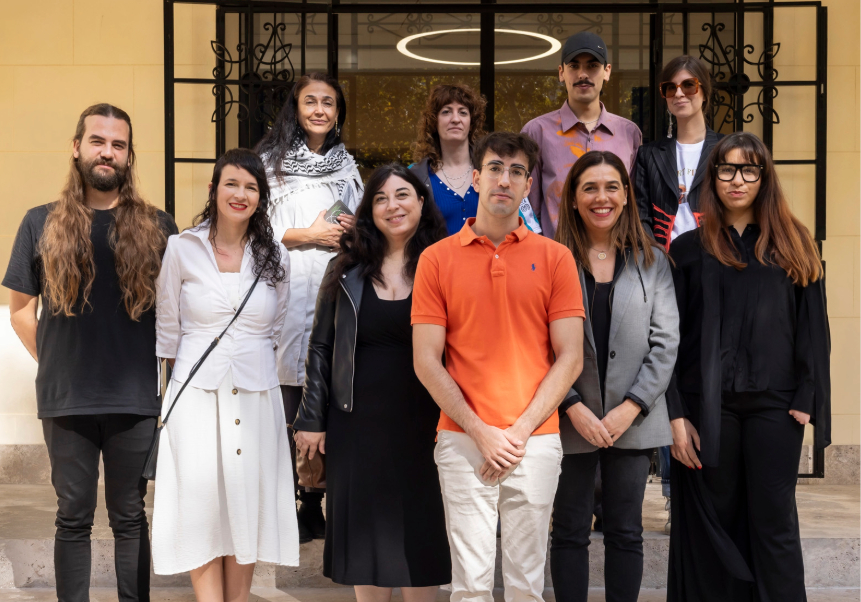The Biblioteca Històrica pays homage to Felipe Mateu y Llopis with the exhibition ‘Salvar el patrimonio, defender la memoria’
- Libraries and Documentation Service
- June 21st, 2023

The University of Valencia presents the exhibition ‘Salvar el patrimonio, defender la memoria. Felipe Mateu y Llopis’ (‘Save heritage, defend memory. Felipe Mateu y Llopis’), a project organised by the office of the Vice-Principal for Research and the Biblioteca Històrica (Historical Library) with the aim to commemorate the 25th anniversary of the death of this distinguished Valencian.
The exhibition is meant to be a reminder and recollection of Felipe Mateu y Llopis' effort to defend heritage and to vindicate the figure of a man deserving of the honours reserved for benefactors of the public heritage. Undoubtedly, due to the trajectory of his career as a prestigious historian, librarian and numismatist, the society and culture of Valencia owes him a great debt of gratitude.
From 21 June to 3 September, the Duque de Calabria Hall of the La Nau Cultural Centre will house a selection of some forty pieces, including books, press pieces, photographs and archived documents that highlight the important roll that Felipe Mateu played in the social and cultural life of Valencia.
The exhibition’s opening, held this Wednesday, was attended by vice-principal for research Carlos Hermenegildo Caudevilla, director of the Historical Library María Jesús García Mateu, and the exhibition’s curators, Manuel Lanusse Alcover, chronicler of Cullera, and Mateu Rodrigo Lizondo, honorary professor at the University of Valencia.
Felipe Mateu y Llopis (Valencia 1901 - Barcelona 1998) was devoted to the study of Spain’s history and he took a particular interest in the Crown’s coinage and became a well-known numismatist. But above all, we have him to thank for his role in saving and defending some of the main Valencian archives during the Spanish Civil War (1936-1939), which threatened to completely destroy the artistic and documentary sources of Valencian culture.
He was a university professor of Palaeography and Diplomacy in Oviedo (1943), Valencia (1943-1945) and Barcelona (1945-1971) and he was also a member of the Faculty of Archivists, Librarians and Archaeologists (1930), assigned to the National Archaeological Museum in Madrid and the Archives of the Kingdom of Valencia (1937-1938). He later became director of the Library of Catalonia (1940-1973).
The exhibition is divided into four sections: “Biographical Sketch", "Defence and protection of documentary and bibliographic heritage during the Civil War", "Presence in Valencian cultural life" and "Publications".
The first section, "Biographical sketch", displays documents from his professional life, such as his academic records or the reports he issued as inspector of libraries in the "Zona de Levante."
The second section, "Defence and protection of documentary and bibliographic heritage during the Civil War”, focuses on the essential role he played in preservation operations, instilled with a high sense of professionalism and Valencian conscience. During the Civil War, as curator of Numismatics at the National Archaeological Museum, he acted courageously in the preservation of gold money, much of which had already been confiscated or lost. But by far, his most important achievement took place after being transferred to the Archives of the Kingdom of Valencia when he managed to rescue from certain ruin archives of enormous value, such as those pertaining to the cathedrals of Valencia and Segorbe, various archives of Toledo and Cuenca, convent archives and libraries, and nobility and private archives, including those of Canon Sanchis Sivera. He was also responsible for the recovery of some significant works of art form the Valencian cathedral. Among the pieces on display are two 16th century works that Mateu y Llopis rescued from the factories before they were turned into pulp.
The section, "Presence in Valencian cultural life”, offers an insight into his involvement in this sphere. On display are archival documents, such as letters and invitations, which connect him to the Centre of Valencian Culture and to illustrious figures such as Nicolau-Primitiu Gómez Serrano, Francesc Almela i Vives, Manuel Sanchis Guarner and Joan Fuster.
The last section, "Publications", presents a selection of Felipe Mateu's work, the fruit of a long life of tireless and erudite activity. His prolific output includes a bibliography on monetary history, as well as studies on sigillography, archival and diplomatic studies. Also on display are some works of a Valencianist nature, like El País Valencià (L’Estel, 1933), awarded by the Valencia City Council and two works that systemise his work: the repertory Titula de Felipe Mateu y Llopis (Barcelona, 1984) and the anthological compilation Studia et scripta historica ac litteraria (Barcelona, 2003) from the Abat Oliba Foundation.
Through Salvar el patrimonio, defender la memoria, the Historical Library of the University of Valencia pays tribute to Felipe Mateu y Llopis by placing a rightfully high value on his contribution and dedication to the preservation and protection of Valencian culture and heritage during the tragic period of civil war. Felipe Mateu y Llopis died in Barcelona in 1998 at ninety-six years of age. His life was a model of fidelity, sensitivity and professionalism that deserves recognition from the world of culture and, especially, from the whole of Valencian society.
Categories: Servei de Biblioteques i Documentació , Exposicions


.jpg)













